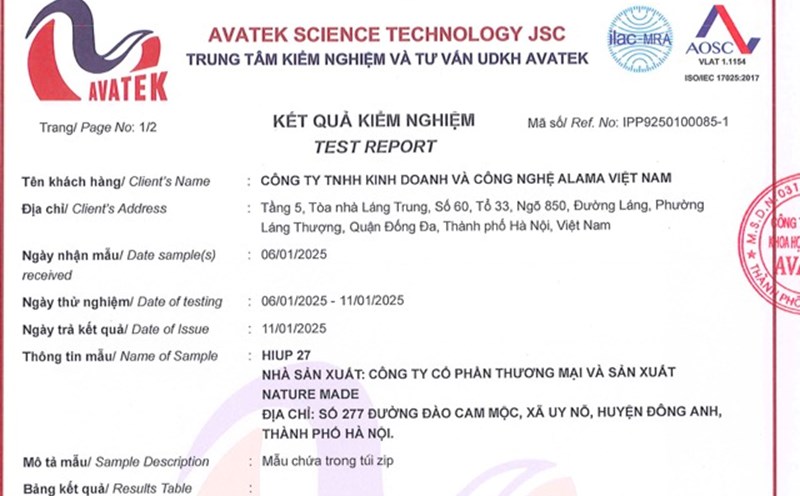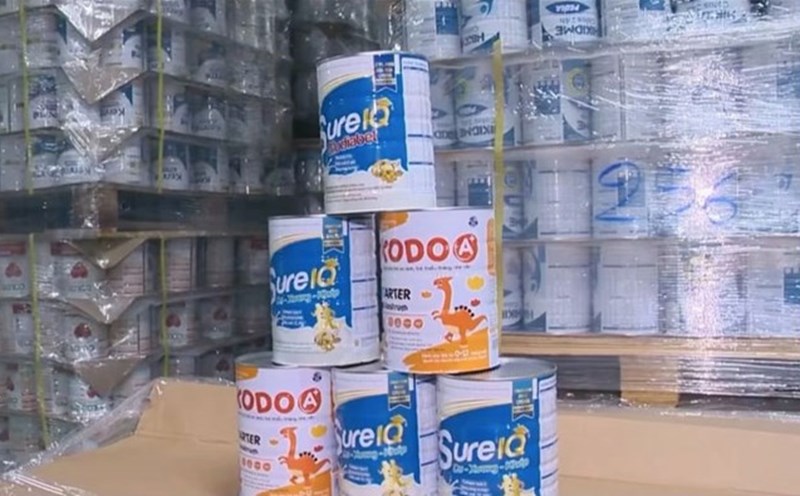sophisticated forgery from the licensing stage
Regarding the case of fake milk production and distribution at Rance Pharma International Pharmaceutical Joint Stock Company and Hacofood Group Nutritional Pharmaceutical Joint Stock Company, which is currently being investigated by the authorities, Ms. Vu Kim Hanh - Chairman of the Vietnam High-Quality Goods Business Association, and Director of BSA Center - said: "This is a particularly serious case. If we want to deal with the problem of fake milk at its root, we cannot stop at the production stage but need to expand the investigation and strictly handle those who assist."
What is worrying, according to Ms. Hanh, is that many fake milk types have been licensed for circulation thanks to sophisticated tricks: Enterprises submit real samples for testing and obtaining a license (pre-inspection), then mass-produced fake products with completely different quality. These types of milk are aimed at vulnerable groups such as infants, the elderly, and people with serious illnesses.
According to Decree 15/2018/ND-CP, this group of products must be registered and licensed to be circulated. However, the post-inspection is very lax. "Only by checking the reality, can we suddenly discover fraudulent behavior" - Ms. Hanh said. Many products recorded as containing herring spreading, bird's nest, walnuts, macadamia nuts... but in reality, they are just marketing tricks.
Weak post-inspection
The biggest problem, according to Ms. Hanh, is that post-inspection work still has many loopholes. "There are post-inspections that are only formal: taking photos, making records and then reaching conclusions. Partly because of limited capacity, partly because of personal interests". Meanwhile, management staff often give the reason of not being able to check all products.
The solution applied by the world is post-inspection according to the principle of risk management. Accordingly, authorities need to prioritize inspection:
Products with high risk levels (such as milk for infants and those with serious illnesses).
The enterprise has a history of violations or is unclear in the production process.
Products with signs of suspicion about selling prices and ingredients are not in accordance with theory.
But now, when amending Decree 15, instead of requiring actual post-inspections at the facility and in the market, the Food Safety Department only proposes post-inspections - in fact, a form of disguised pre-inspections, unable to detect fake milk - Ms. Hanh commented.
Can't ignore fake milk sellers
According to Ms. Hanh, another important link is retail outlets. The current popular business model is "deposit": manufacturers bring goods to the store, without having to pay in advance. The shop sold out and divided the profit, the average profit was from 150,000 VND/can of milk - no capital, no risk, no inspection.
Some stores are also recommended by doctors in the hospital, selling products right at the hospital pharmacy. Therefore, milk outlets have sprung up densely around maternity, children's, cancer hospitals and suburban areas.
"We cannot let functional foods, especially milk for children, be blatantly beaten like that without proper punishment" - Ms. Hanh emphasized.











